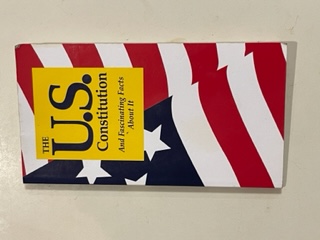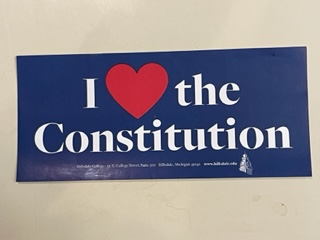
Today, Sept. 17, is Constitution Day—I am a member of the National Society Daughters of the American Revolution (NSDAR). Every year, Constitution Day is a big deal with our chapters across the U. S. which celebrate the U. S. Constitution, and help Americans understand it better. The U. S. Constitution was signed Sept. 17, 1787 in Philadelphia. It is 235 years old today.
In the spirit of NSDAR’s Constitution awareness, I submitted a Letter-to-the-Editor to our local paper. Maybe it will be published this week. I copy it here in hopes you might learn, like I did, about one of the underused rights of The Constitution.
Dear Editor,
Constitution Day is Saturday. Sept. 17. Several years ago, I attended a series on the U. S. Constitution sponsored by a local group. I learned a lot. Good grief, there were things I had never heard of. Like Nullification!
The U. S. Constitution gives our federal government 17 enumerated powers. Much legislation and regulation that happens is outside those powers, in other words: unconstitutional. The same can be said of executive orders.
States do have the power to stop what our elected, and unelected, officials are doing to America. They can use Nullification.
All powers not granted to the federal government in Article I Section 8 of the U. S. Constitution are retained by the states. If a law, or executive order, is not Constitutional, each state has the power and responsibility to refuse to follow it.
Nullification has been used by states in the past. It is not used enough. We should remind our elected representatives that they took an oath of uphold the U. S. Constitution. That means Texas, and other states, should follow only laws and executive orders which are Constitutional.
I carry a pocket copy of the U. S. Constitution in my purse. I like to remind myself what the U. S. government can do, and what it cannot do. I suggest that our national and state elected officials should also carry the U. S. Constitution with them, and refer to it more often!
Sincerely,
Carole Owen






